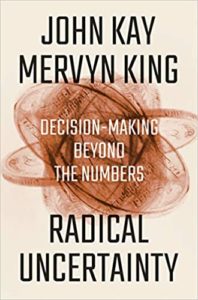Groundhog Day is No Good
By Amy Willis

EconTalk host Russ Roberts has long been sharing his skepticism of economics’ growing empiricism with listeners. In this episode, the conversation turns radical. Roberts welcomes economists John Kay and Mervyn King to talk about their book, Radical Uncertainty. So what does radical uncertainty mean?
Rationality is dubbed a “suitcase word” and a “parlor game for economists,” among other things, during the conversation. Can we really act rationally in the face of imperfect information? Do we really want to rid our lives of uncertainty? After all, Groundhog Day showed us that living with absolute certainty is an absolute nightmare. So how can we best manage risk while embracing uncertainty? There’s more to explore in this episode. Here are a few further thoughts to continue our conversation:
1- Why are King and Kay so critical of cost-benefit analysis? What use is there for this practice in public policy decisions? How do Kay and King recommend policy decisions be made in the face of radical uncertainty?
2- What’s wrong with the way we think about rationality in economics, and behavioral economics in particular, according to Kay and King? How do they see their work as building on that of Frank Knight and John Maynard Keynes?
3- What is Milton Friedman‘s “as if” hypothesis, as Roberts describes it? What does he (now) think is wrong with it? How does this illustrate economists’ predictive failures, according to King and Kay? How might you relate this to what we have have witnessed so far in policy responses to COVID-19?
4- Should economics be more deductive or inductive? Explain. What does King mean when he sees more abductive reasoning needs to be added to the practice of economics?

